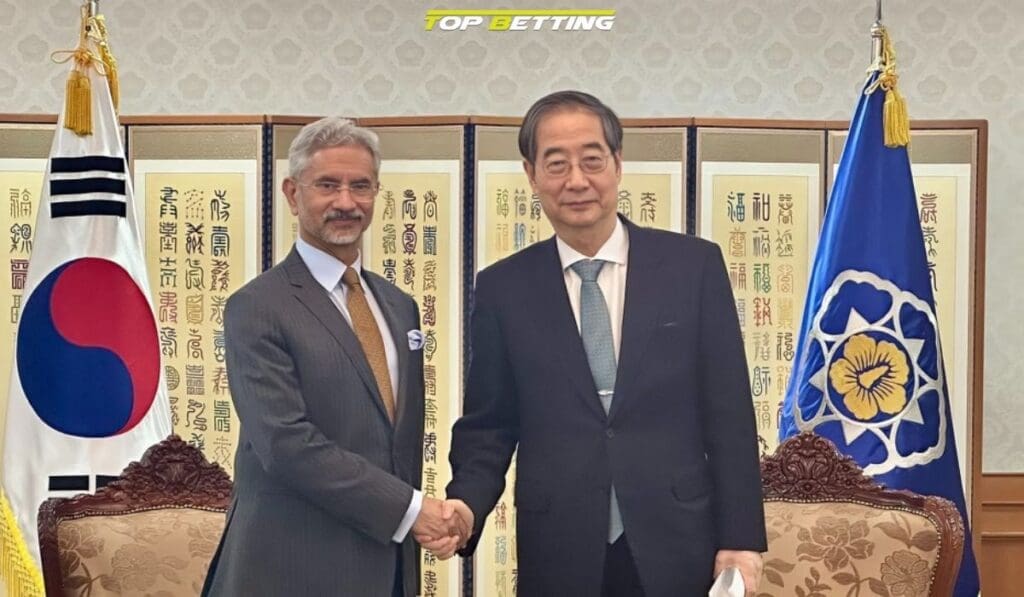
Jaishankar speaks on Indo-Pacific issues | A Global Issue
In the realm of international relations, effective communication and collaboration between nations are crucial for maintaining peace, stability, and prosperity. Recently, External Affairs Minister S Jaishankar embarked on a four-day visit to South Korea and Japan, where he engaged in significant discussions with key stakeholders on various pressing issues. One of the highlights of his trip was his meeting with South Korea’s national security adviser, Chang Ho-jin, where they delved into the shared convergences in the Indo-Pacific region and contemporary regional and global issues.
Strengthening Bilateral Ties
During his visit to South Korea, Jaishankar aimed to strengthen the existing ties between India and South Korea, both of which share a Special Strategic Partnership encompassing diverse areas of cooperation such as trade, investments, defense, education, science and technology, and culture. The discussions with Chang Ho-jin were an important step in this direction, as they provided an opportunity to reaffirm the commitment to deepen bilateral relations.
Exploring the Indo-Pacific Region
The Indo-Pacific region has emerged as a critical theater for geopolitical competition and economic growth. With its vast expanse and strategic significance, it has garnered attention from major global powers. Jaishankar and Chang Ho-jin recognized the convergences in their respective countries’ interests within this region. They acknowledged the need for continued engagement and cooperation to address the challenges and opportunities presented by the Indo-Pacific.
Nurturing Regional and Global Stability
In addition to the Indo-Pacific, Jaishankar and Chang Ho-jin discussed various regional and global issues affecting peace and stability. The discussions covered a wide range of topics, including regional security concerns, counterterrorism efforts, climate change, sustainable development, and the rules-based international order. Both leaders emphasized the importance of multilateralism and collaboration in addressing these challenges and fostering global stability.
The India-South Korea Joint Commission Meeting
As part of his visit, Jaishankar co-chaired the 10th India-South Korea Joint Commission Meeting (JCM) with his counterpart, Cho Tae-yul. The JCM serves as a platform to comprehensively review the entire gamut of bilateral cooperation between India and South Korea. It provides an avenue for both sides to explore new opportunities, enhance collaboration, and strengthen ties across various sectors.
Engaging with Korean Dignitaries and Think Tanks
Jaishankar’s visit to South Korea also included interactions with Korean dignitaries and heads of think tanks. These engagements offered a valuable opportunity to exchange views, share insights, and deepen mutual understanding. The discussions revolved around enhancing cooperation in areas of mutual interest, fostering people-to-people ties, and exploring avenues for further collaboration.
The two-nation visit’s agenda
The visit to two of India’s closest allies, South Korea and Japan, “will set the agenda for future cooperation and impart further momentum to bilateral exchanges,” according to a statement from the ministry of external affairs.
First, on March 5–6, the minister will make a two-day trip to Seoul to co-chair the 10th India–Republic of Korea Joint Commission Meeting (JCM) alongside Cho Tae-yul, the Korean government’s minister of foreign affairs. He is anticipated to meet heads of think tanks, the Indian community, and other dignitaries.

Meeting the Indian Community
Another important aspect of Jaishankar’s visit was his meeting with the Indian community in South Korea. The Indian diaspora plays a significant role in promoting cultural exchange, economic cooperation, and people-to-people ties between India and South Korea. Jaishankar’s interaction with the Indian community provided a platform to understand their concerns, address their needs, and strengthen their connection with India.
It is anticipated that the JCM would thoroughly examine every aspect of bilateral cooperation and look into ways to make it stronger further. In addition, the visit would offer a chance for the two sides to discuss topics of common concern on regional and international platforms, the Ministry of External Affairs stated in New Delhi before to Jaishankar’s arrival.
MEA says…….
The strategic engagement at the level of the foreign minister would take place during the visit, Jaiswal added, highlighting the close connections between Japan and India.
From March 5–8, EAM will go to Japan and South Korea. We have a very wide-ranging, complex connection with S Korea, and he will be attending the 10th joint commission meeting in South Korea, he said.
“All aspects of the relationship would be discussed,” the MEA’s official spokeswoman stated in response to a query. Along with highlighting India’s close connections to Japan, Jaiswal said that a strategic engagement at the level of foreign ministers will take place while she was there.

The Way Forward
Jaishankar’s discussions with Chang Ho-jin and other key stakeholders in South Korea marked a significant step in the ongoing efforts to enhance bilateral cooperation and deepen engagement between the two nations. The visit highlighted the shared commitment to addressing regional and global challenges, fostering peace and stability, and promoting mutual prosperity.
As India and South Korea continue to strengthen their partnership, it is expected that their cooperation will extend to new areas and contribute to the overall development and progress of the Indo-Pacific region and beyond.












